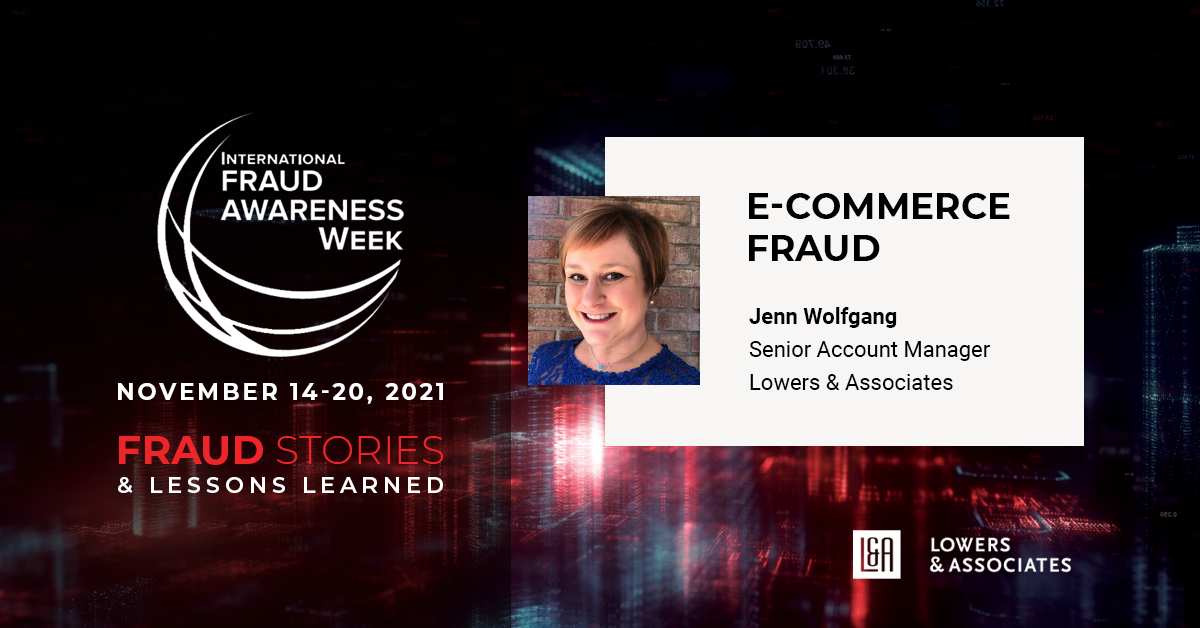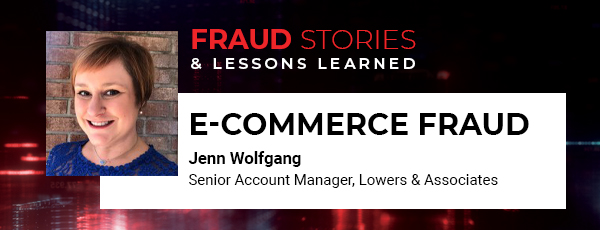
Fraud Stories: E-Commerce Fraud

Today is day 4 of our Fraud Awareness Week series, Fraud Stories and Lessons Learned. Jenn Wolfgang, Account Manager for Lowers & Associates, shares the story of a monthly subscription e-commerce startup who had come to Lowers & Associates looking to improve their risk profile. What the team immediately uncovered was an environment ripe with fraud and vulnerable to even more losses.
According to the Association of Certified Fraud Examiners (ACFE), losing data to fraud can be more costly than the loss of cash and other assets. To ensure data security, safeguard intellectual property and guard against cyber fraud, organizations — and the fraud examiners who help protect them — must stay informed of rapidly advancing technologies, emerging business trends, and the methods employed by increasingly sophisticated information thieves.
In this fraud story, Jenn explains how fraud was allowed to flourish, how L&A helped mitigate, and what organizations can do to reduce cyber fraud and inventory loss.
Listen to the story here:
For added insight into the issue of e-commerce fraud, we turned to our friends at Lowers Forensics International. Marc Johnson, President of Lowers Forensics, remarks, “As the world strained against the grip of a global pandemic, the very nature of ecommerce fraud changed. In a matter of months, fraud became more abundant, more automated, and more diversified in terms of techniques and targets. Forensic accounting is one of many important aspects in the fight against e-commerce and financial crime via the identification and tracking of suspected fraud cases. It is the process of interpreting, summarizing, and presenting complex financial issues in a concise, detailed, and factual manner for the purpose of uncovering fraud. The analysis, interpretation, summarization, and the presentation of difficult financial related issues are essential features of forensic accounting.”
Stay tuned tomorrow for our final Fraud Week episode where we’ll hear from Jon Groussman, President of Lowers & Associates, on what organizations can do to better protect themselves and how an outside consultant can help.
ABOUT THE AUTHOR